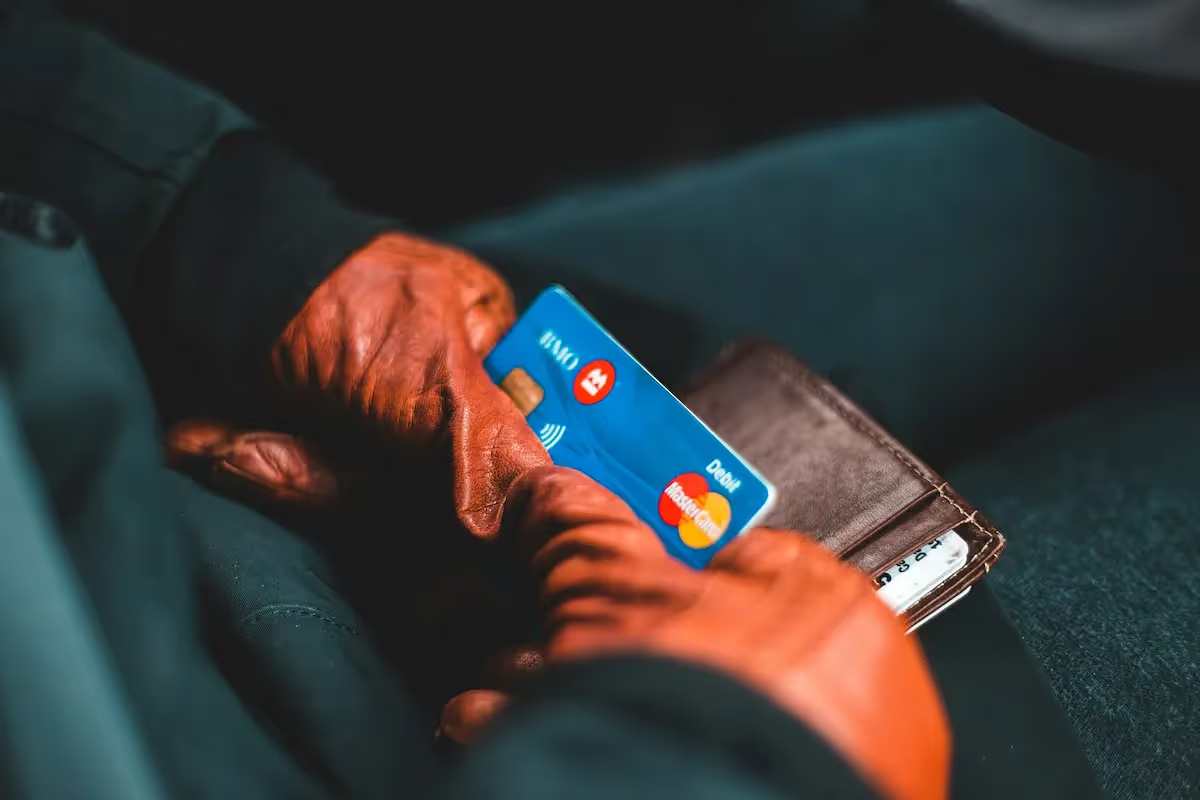
Kudos has partnered with CardRatings and Red Ventures for our coverage of credit card products. Kudos, CardRatings, and Red Ventures may receive a commission from card issuers. Kudos may receive commission from card issuers. Some of the card offers that appear on Kudos are from advertisers and may impact how and where card products appear on the site. Kudos tries to include as many card companies and offers as we are aware of, including offers from issuers that don't pay us, but we may not cover all card companies or all available card offers. You don't have to use our links, but we're grateful when you do!
Can You Pay a Lawyer with a Credit Card?
July 1, 2025


Quick Answer
Indeed, paying for legal services with a credit card is a standard practice accepted by the majority of modern law firms.
Should You Pay A Lawyer With A Credit Card?
Deciding whether to use a credit card for legal fees involves weighing several factors.
Benefits of Paying with a Credit Card
- Rewards Programs: You can earn points, miles, or cash back on a significant expense, just as you would with any other large purchase.
- Immediate Payment: Using a credit card allows you to pay retainers and invoices instantly, securing legal help without delay.
- Consumer Protections: Credit cards offer robust fraud protection and a formal dispute process if billing issues arise with the law firm.
- Financial Flexibility: It provides a way to cover legal costs upfront, even if you do not have the full amount available in cash.
Costs of Paying with a Credit Card
- Interest Accrual: If you carry a balance, high interest rates can substantially increase the total amount you pay for legal services over time.
- Processing Surcharges: Some law firms pass their credit card processing fees, often 2-4%, on to the client, adding to your bill.
- Reduced Available Credit: A large legal charge can tie up a significant portion of your credit limit, leaving less available for other needs or emergencies.
- Risk of Long-Term Debt: It can be easy to accumulate debt if you are unable to pay off the balance promptly.
How to Pay A Lawyer With A Credit Card
Using a credit card for legal fees can offer convenience, purchase protection, and rewards. Follow these general steps to ensure the transaction is smooth and financially sound.
- Confirm the Law Firm’s Policy: Before proceeding, verify that your lawyer or their firm accepts credit card payments. Inquire about any potential processing fees, as some firms may pass these costs on to the client.
- Review Your Fee Agreement: Carefully read your retainer or fee agreement. It should clearly outline the payment schedule, what costs are covered, and the terms for using a credit card for retainers versus earned fees.
- Select the Best Card for the Job: Paying a large legal bill is an opportunity to earn significant rewards or save on interest. To find an optimal match for your situation, you can use Kudos’ Explore Cards tool to compare options.
- Plan for Repayment: Treat the legal charge like any other significant expense. Have a clear plan to pay off the balance quickly to avoid accruing high interest, which could negate any rewards earned and add to your overall cost.
- Keep Detailed Records: Retain all receipts and credit card statements related to the payment. This documentation is crucial for your personal financial records and for tracking your legal expenses accurately.
Impact On Your Credit Score
Using a credit card for legal fees can be a double-edged sword for your credit score. Here are the primary factors to consider before you swipe.
- Credit Utilization Ratio. A large legal bill can spike your credit utilization, which compares your used credit to your total available credit. A ratio above 30% can negatively affect your score.
- Payment History. Consistently making on-time payments is vital for a good credit score. Failing to meet at least the minimum payment can result in negative reporting to credit bureaus.
- New Credit Inquiries. Opening a new card specifically for legal expenses will trigger a hard inquiry on your report. This can cause a temporary dip in your credit score.
Alternative Ways To Pay A Lawyer
ACH and eCheck Payments
Beyond credit cards, law firms can accept payments directly from a client's bank account. Methods like ACH (Automated Clearing House) and eCheck transfers offer a secure and efficient alternative. These options often come with lower processing fees compared to credit cards, which can be a significant advantage for both the firm and the client, especially when handling large sums for trust or operating accounts.
Scheduled Payment Plans
For clients facing substantial legal bills, setting up a scheduled payment plan can be an effective solution. This allows the total amount to be broken down into smaller, recurring installments. Firms can configure these plans to automatically charge a client’s saved payment method on a predetermined schedule, which helps maintain consistent cash flow while providing clients with much-needed financial flexibility.
Choose the Right Card to Pay A Lawyer
Paying legal fees is a significant expense, and choosing the right credit card can make a big difference. Whether you're looking for a card with a 0% introductory APR to spread out the cost or one that offers maximum cash back on a large transaction, finding the perfect fit is crucial. The Kudos Explore Tool can help you navigate the options, allowing you to compare nearly 3,000 cards based on your personal preferences. You can find your credit card match and ensure you're using the best possible payment method for your situation.
If you want to get more from your credit cards, Kudos is the premier free shopping tool for your online purchases. Better yet, we're giving you $20 back after your first qualifying purchase—just sign-up for free with code "GET20" and complete a transaction at a Boost merchant.
Frequently Asked Questions
Are there extra fees for using a credit card?
Some law firms may pass on a processing fee to cover transaction costs, so it's always best to ask first.
What types of legal fees can I pay with a credit card?
You can typically pay for retainers, consultations, and ongoing legal services, depending on the individual firm's payment policy.
Is it safe to pay my lawyer with a credit card?
Yes, reputable law firms use secure, encrypted payment processors to protect your sensitive financial information during every transaction.

Supercharge Your Credit Cards
Experience smarter spending with Kudos and unlock more from your credit cards. Earn $20.00 when you sign up for Kudos with "GET20" and make an eligible Kudos Boost purchase.
Editorial Disclosure: Opinions expressed here are those of Kudos alone, not those of any bank, credit card issuer, hotel, airline, or other entity. This content has not been reviewed, approved or otherwise endorsed by any of the entities included within the post.





















.webp)
.webp)
.webp)
.webp)















